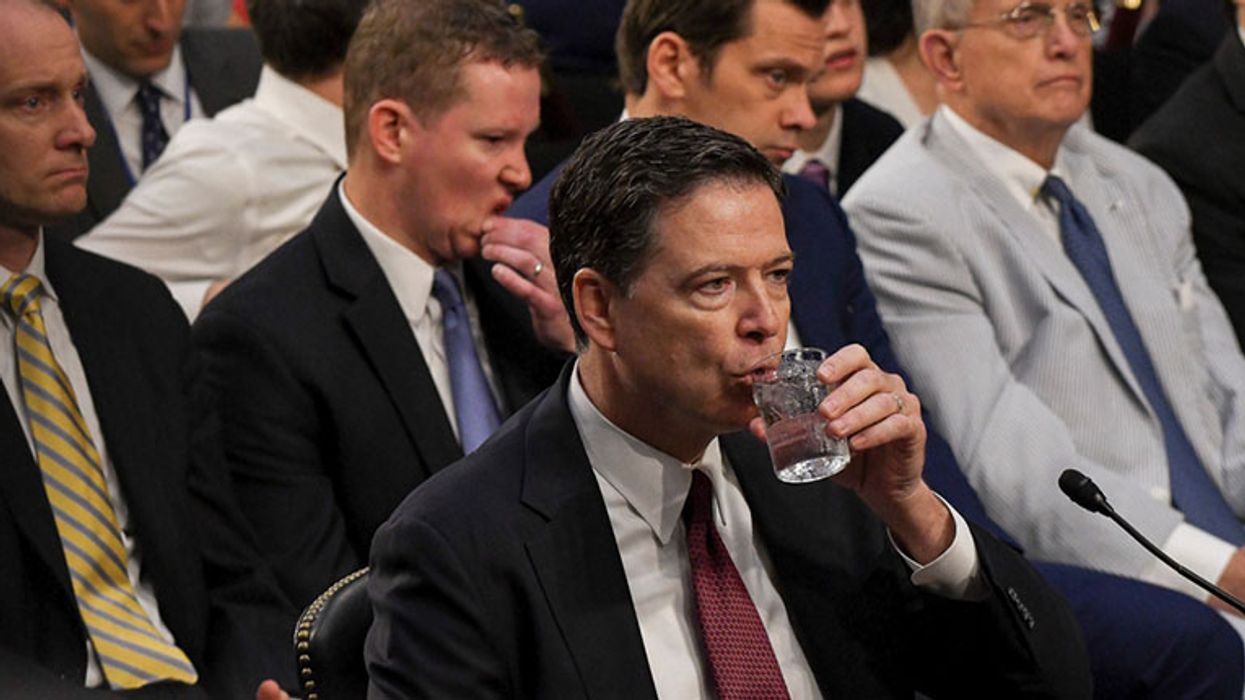'Astonished' legal expert details 'remarkable developments' in Comey case

Former FBI Director James Comey pleaded not guilty in a Virginia courtroom Wednesday after being indicted by a federal grand jury on two charges: making a false statement to Congress and obstructing a congressional proceeding. And with a trial set for Jan. 5, 2026, former federal and state prosecutor Elie Honig detailed the "remarkable developments" in an interview with CNN.
"It is 89 days from today and this is the opposite of the normal dynamic," Honig said. "Usually defense lawyers want more time. They want more time to prepare. They're not available. Sometimes they want to drag it out for strategic purposes as we saw with Donald Trump and his prosecutions, for example."
Honig said the speed with which this trial is set to occur is shocking.
"I'm astonished at how quickly this is really going to go there," Honig said. "Typical case takes 7 or 8 months. And here we're talking about just under three."
Honig described the prediction that the trial will last two to three days as a "very interesting development."
"First of all, prosecutors — generally federal prosecutors — have a bad habit of over trying their cases, of spending way too long, of putting in too much extraneous detail," he explained.
Honig offered two explanations for the assumed speed of Comey's case, deemed meritless by many legal experts.
"One, prosecutors understand they need to be focused here. But two, the case itself is quite narrow. It really gets back to whether Jim Comey lied when he testified to the Senate that he had not authorized an FBI leak," Honig said.
In June 2017, after being fired by then-President Donald Trump, Comey testified that he had asked a friend, a law professor named Daniel Richman, to leak the contents of his private memos to a reporter from The New York Times.
"We know that the leaks allegedly were about Hillary Clinton's possession of an email server. But two to three days is a very short trial. And I think the parties will be well served to stick to that and not drag it out," Honig said.
Honig noted the government could have delayed the trial, but didn't.
"There's a chance the government could have gone in there today and prosecutors said, We need three weeks to try our case.' The fact that it's 2 to 3 days shows that this is extremely narrow. It's based on one piece of testimony about one fact," Honig said.
The judge, he sadded is also expecting everyone on both sides to be prepared for a quick trial.
"The judge was signaling this is not what we would call 'a hold date' or a temporary date. January 5th. This is a hard date. And he was anticipating today some of the speed bumps and saying, 'We're not doing that,'" Honig said.
"Everyone is going to be on point here," he continued. "Prosecutors are going to turn over the documents. You have to you're going to do it promptly. We're not going to get sidetracked."
And while part of Trump's strategy was to drag out and delay his trials, Comey is the antithesis, Honig said.
"We talk about the speedy trial, right. That is a constitutional right that belongs to the defendant," he explained. "Comey wants a speedy trial. Maybe that tells you something about his level of confidence."
- 'Amateur hour': Trump official blasted over 'stunt' outside New York AG’s home ›
- 'Amateur hour': Trump official blasted over 'stunt' outside New York AG’s home ›
- 'Epic mismatch of talent': Expert says Comey will 'mop the floor' with Trump’s unqualified loyalist ›



